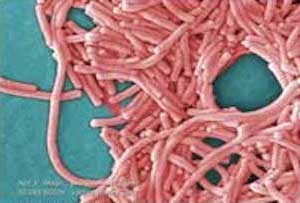A 10th death has been reported in connection with the Legionnaires’ Disease outbreak that sickened 88 people in Flint, Michigan between May 2014 and October 2015.
In a press release, the Michigan Department of Health and Human Services (MDHHS) says it has increased the death toll based upon its recent state-wide review of all recent Legionnaires’ Disease cases:
“To date, 88 cases and ten deaths have been identified in total for the 2014 and 2015 outbreaks in Genesee County,” said Eden Wells, M.D., Chief Medical Executive with the MDHHS. “While legionellosis is not uncommon, it’s important that any person who is having symptoms of respiratory illness let their doctor know right away.”

This 10th death was of a patient who did not live in Genesee County, but who had been hospitalized there in a local, currently unnamed hospital within the two-week incubation period of Legionnaires’ Disease. The case was initially reported to the Shiawassee County Health Department.
MDHHS has also updated its comprehensive analysis of the Genesee County outbreak to include data on prior hospitalizations of the infected patients, a list of speculated community exposures, and an epidemiologic description of the 26 cases (of the total of 43 cases it reviewed) that were not linked either to a Flint hospital or to the water systems.
Of the 43 case patients MDHHS interviewed, 23 had been an overnight inpatient in a Genesee County hospital in the two weeks prior to their Legionnaires’ Disease diagnosis; one additional patient also had a healthcare exposure (as an inpatient, outpatient, or visitor) to a hospital.
In its updated analysis, MDHHS does not mention the hospitals involved by name, but rather refers to them as “Hospitals A, B, C,” 24 of the 43 patients interviewed (all of those who had a healthcare facility exposure) had been hospitalized or visited Hospital “A”; of these cases, 20 are defined as “possibly healthcare-associated.” Only 1 case, a patient who visited both Hospital “A” and Hospital “Z” (outside of Genesee County) is categorized as “definitely healthcare-associated.”
Although the MDHHS analysis does not say which specific hospitals are associated with the Legionnaires’ Disease outbreak, the Michigan state epidemiologists who first began investigating the explosion in cases in 2014 concluded that “McLaren [Regional Medical Center] was more strongly “associated with the outbreak than any other possible source – including Flint River water.” (1)
Source:
1. Bouffard, Karen. “Hospital ties Legionnaires’ to Flint water.” The Detroit News. Web. 23 Jan. 2016.
Our law firm is not taking these cases.